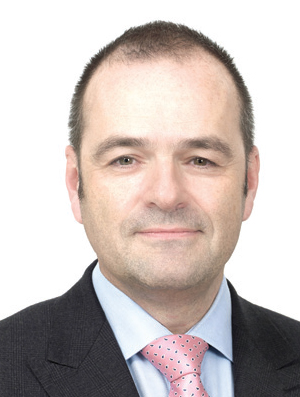Default funds are investments that employees’ pension savings are placed into if they choose not to make a decision themselves about where they wish to invest. But following the recent shifts in the pensions market, such as the introduction of the new pension flexibilities and auto-enrolment, default investment strategies are also going through changes.

If you read nothing else, read this…
- The pension freedoms and auto-enrolment have impacted default funds.
- Default investment funds should offer employees choice and future-proofing in order to be effective saving tools.
- Employer communication is vital to ensure staff are aware of their options and what the default fund entails.
Opportunity for change
The pension freedoms, which came into effect in April 2015, have been seen as an opportunity for employers to re-evaluate their default investment strategies. In addition, pensions auto-enrolment, and from this year re-enrolment, has also highlighted the importance of reviewing a default fund. According to Jo Sharples, investment principal at Aon Hewitt, the freedoms have given employers the opportunity to review their provision and offer more choice. “Default funds used to revolve around annuity purchase, but now a mix of drawdowns might be best, just to keep the flexible options open.”
The changes to the pensions market have affected how employees view their retirement funds. Jenny Holt, head of investment solutions at Standard Life, says: “[Employees] still want to take tax-free cash and annuitisation just isn’t as popular as it used to be.”
For instance, only a quarter (25%) of employees would use most or all of their pension pot to buy an annuity when they retire, according to research by pensions consultancy Hymans Robertson, published in April. The option of income drawdown may become more appealing, but employees will need appropriate information and guidance to decide on the best course of action for their retirement funds.
Holt believes that preparing for the future, with regards to both savers’ pensions and the pensions market, is really important for a default investment strategy. “Flexibility and future proofing are so important, because things can change and you need to be able to adapt,” she says.
Choice in default investments
Default funds have historically made use of a lifestyling strategy so that when the employee is approaching retirement, normally about 10 years prior, their investments are gradually moved from riskier assets such as equities, towards safer assets such as cash. This lessens the risk of a sudden drop in the fund’s value just before retirement, and reassures savers that their pension pot will be around the amount that they have saved.
However, strategies are now changing given the new pension flexibilities. Simon Chinnery, head of UK defined contribution at JP Morgan Asset Management, believes that the default fund market is fairly distorted as people are taking cash for different reasons, and staff are typically in the default fund because they do not really want to engage with investment. “It is likely in the near future that people will want or need to work longer, and a cash-based default fund is potentially a lousy place to be with less return than other paths,” he says. “Default funds should always target a minimum income replacement for staff, and we need to move away from those out-dated lifestyle funds.”
Default investment strategies are being shaped according to employees’ options through the pension freedoms. Martin Thompson, director of Premier Companies UK, says: “Most defaults used to centre around annuity purchase, but now multi-asset funds with a low volatility threshold are likely to become more popular because they embrace the options of the pension freedoms. Employees’ options target annuities, drawdown or cash.”
Chinnery adds: “Consultants are looking at slicing and dicing workforces to create different defaults focused on cash, annuities and drawdown. But it can be dangerous to make those kind of assumptions about a workforce and its needs.”
Employer communication is vital
Because employees who go into their scheme’s default investment fund may have little interest in, or knowledge of, investments, employers’ communication needs to be both clear and concise. Christopher Stiles, principal associate at law firm Wragge Lawrence Graham and Co, says: “The vast majority of savers don’t get involved with pensions investments, and as [employers need] to have a default fund with auto-enrolment, employees generally don’t have to engage with investment.
“Employers, trustees and providers need to communicate the default clearly. This requires knowing [the] membership, and making sure the communication is concise and not full of jargon, and actually explains what the default fund entails.”
The latest trends in default investment strategies have been influenced by the latest changes to the pensions market, so employers need to ensure their staff are fully aware of their options for retirement.
Viewpoint: Pension schemes must meet new freedoms

Since the government pension reforms in April, many pension providers have been reviewing their default funds. They have looked at whether their products will continue to meet the needs of their investors, and whether they are providing what people are looking for in the new environment.
In particular, plans have looked carefully at their defaults’ composition to ensure that they meet the new challenges such as changes in income, reduced volatility because of less variable returns from investments such as stocks, the ability to switch into other instruments at a reasonable cost and also the changing retirement demographic.
All these elements are being considered to allow for the investment strategy of a plan, or ‘glide path’, to potentially change.
To ensure their products are fit for purpose, many providers have been reviewing their default allocations. Up until now, very little has changed because many plans are still reviewing their options. However, given time, the Defined Contribution Investment Forum (DCIF) expects that these new strategies should become more widely used.
While the overall defaults will continue to remain fairly static, we expect that with the new pension freedoms, more options will be offered to scheme members. This will ensure that pension plans are able to meet the challenges of members wanting to drawdown cash to fund other requirements or to purchase annuities, and also the ongoing management of post-retirement in drawdown requirements.
Rob Barrett is vice chair of the Defined Contribution Investment Forum (DCIF)
Case study: Cancer Research UK diversifies its default fund

Cancer Research UK (CRUK) replaced its equity-based default investment fund with a more diversified, less traditional option following the introduction of April’s pension flexibilities.
Since then, of CRUK’s 800 staff, and those who left its defined benefit (DB) pension scheme when this was closed to future accrual on 31 March 2015, 90% have gone into the default option for the charity’s group personal pension plan (GPP).
James Dolan, pensions manager at Cancer Research UK, says: “We wanted to make our staff more aware of the changes to pensions and the value of the pension scheme and other benefits we offer, which is why we updated our internal pensions website and pushed people towards it with email communications.”
The charity held awareness shows for staff to highlight the most significant points of the organisation’s forthcoming pensions changes in October 2014, which it will do again around the same time this year. It also hosted the shows in January, March and June this year in different stores around the country. The shows are a chance for staff to ask questions to the internal pensions team and to be shown where to get more information.
CRUK has a younger workforce in its London head office, and therefore adapted communication around its new default fund and the pension freedoms to suit this demographic. Its initial roadshows focused on older staff in the charity’s retail stores, whereas communications for head office staff were more focused on what auto-enrolment means and why staff should contribute more into a pension.
Dolan adds: “Default funds are part of the wider issue of pensions, so it’s important for people to understand where their money is being invested and the risks around it.”